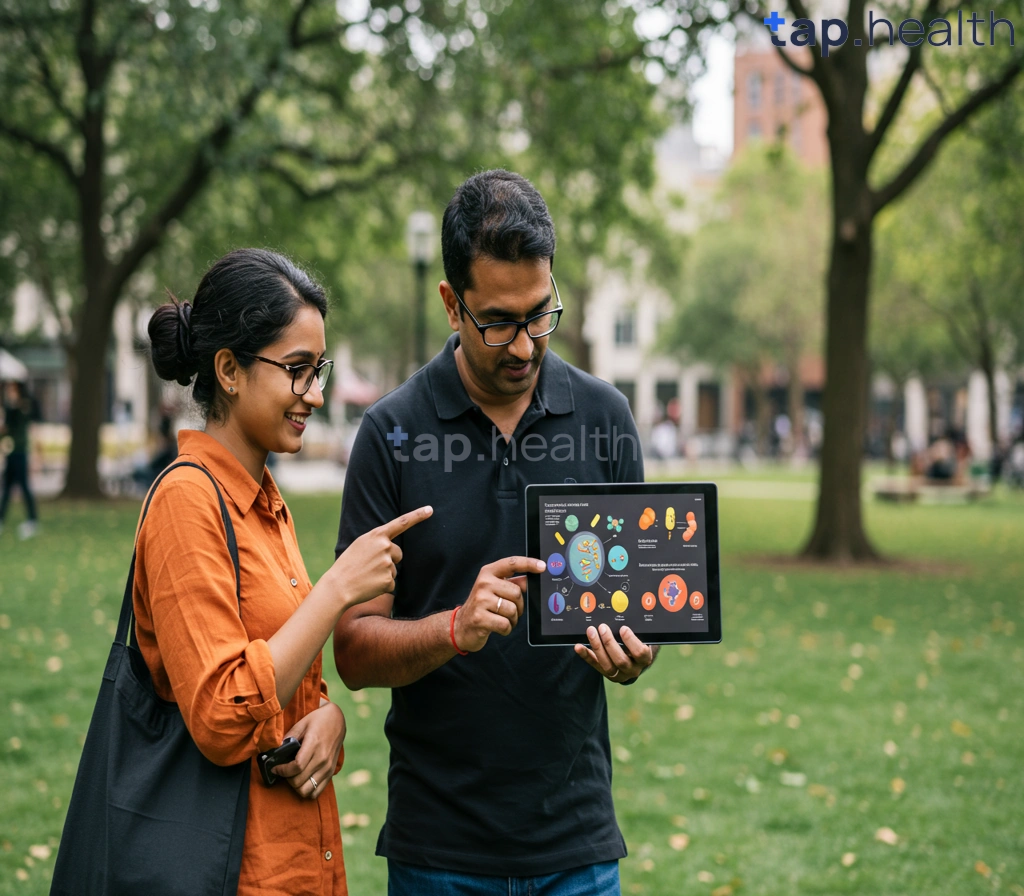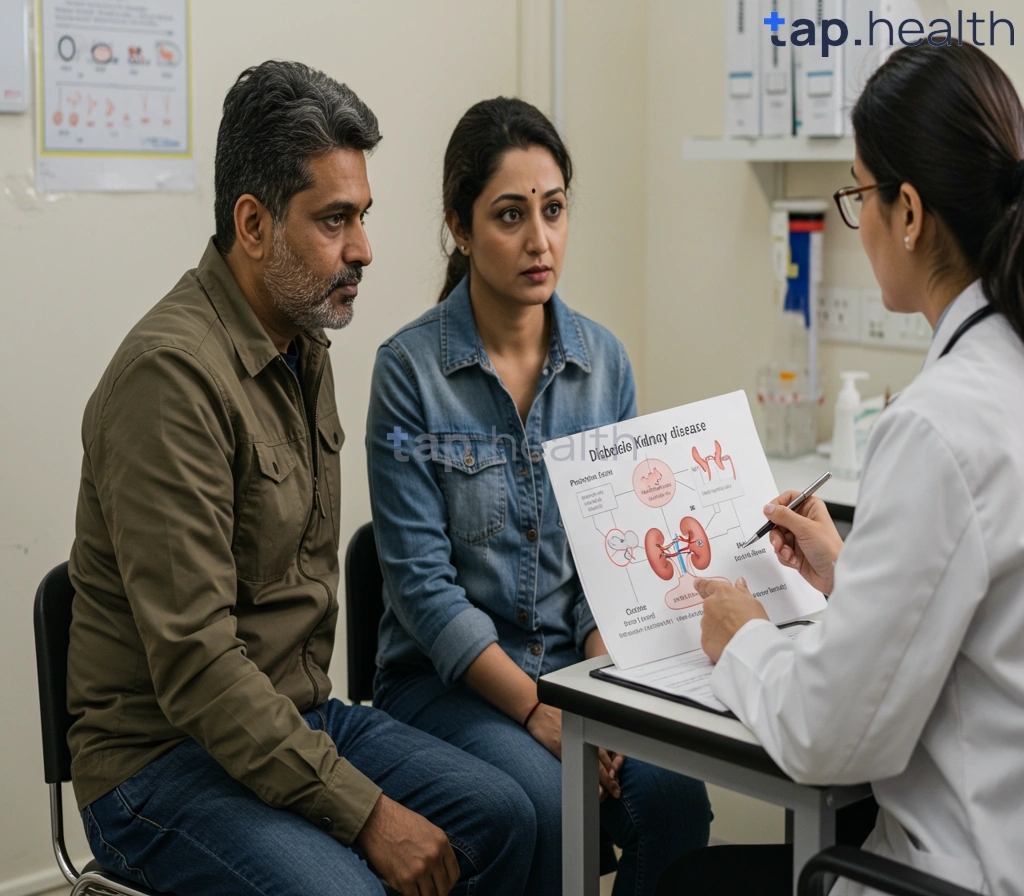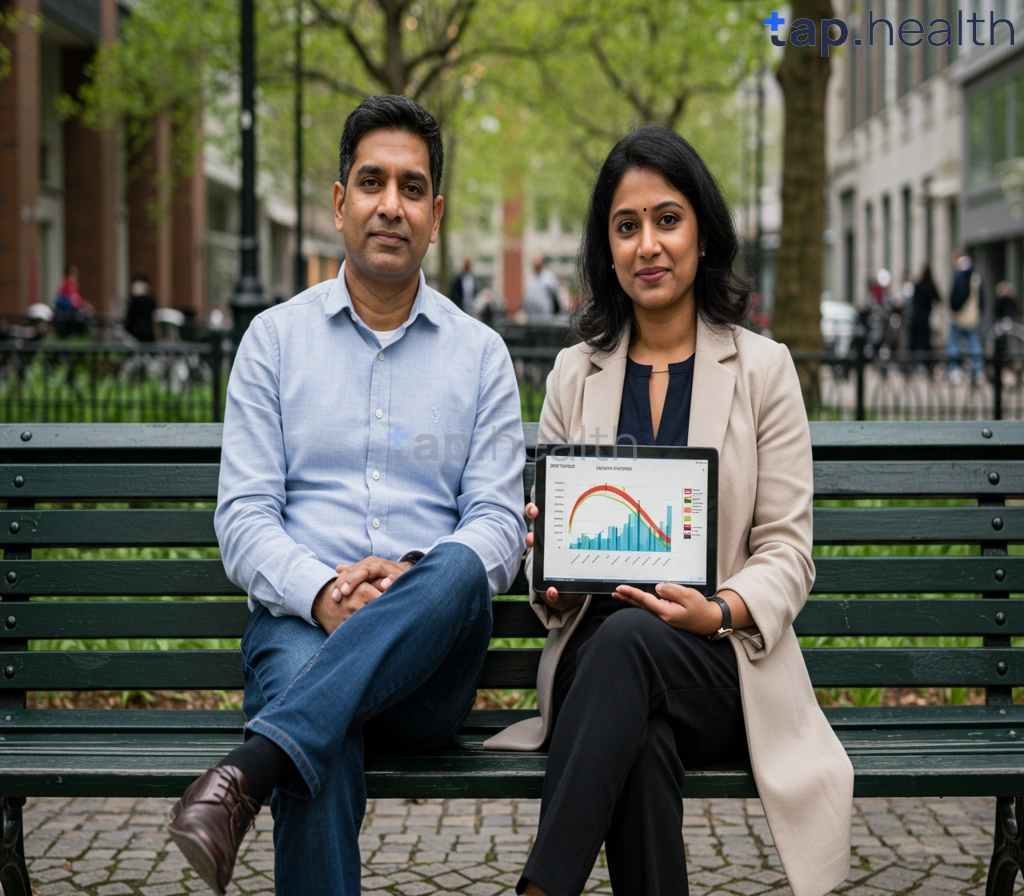Table of Contents
- Diabetes & Gut Microbiota: The Diet Connection
- How Your Diet Impacts Gut Health and Diabetes
- Understanding the Gut-Diabetes Link Through Nutrition
- Improve Diabetes Management: Optimize Your Gut Microbiome
- The Power of Diet: Reshaping Your Gut for Diabetes Control
- Frequently Asked Questions
- References
Managing diabetes can feel like a constant balancing act, but what if I told you a significant piece of that puzzle lies within your gut? It’s true! Diabetes and gut health are intimately connected, and understanding this relationship is key to better managing your blood sugar levels. This blog post dives into the fascinating world of Diabetes and Gut Health: How Your Diet Impacts Microbiota, exploring how the tiny organisms living in your intestines—your microbiota—play a crucial role in your overall health and diabetes management. We’ll uncover how diet significantly influences this microbial ecosystem and what you can do to foster a healthy gut for better diabetes control. Let’s get started!
Diabetes & Gut Microbiota: The Diet Connection
The link between diabetes and gut health is undeniable. A significant portion of the global diabetic population – 61% are aged between 20-64 years, while 39% are 65+ (source) – making this a critical health concern, especially in densely populated regions of India and other tropical countries. Understanding how diet impacts gut microbiota is key to managing and even preventing this prevalent disease.
The Role of Diet in Shaping Gut Microbiota
Your diet directly influences the composition and activity of your gut microbiome – the trillions of bacteria, fungi, and other microorganisms residing in your digestive tract. A diet rich in processed foods, refined sugars, and unhealthy fats can disrupt this delicate balance, leading to an increase in harmful bacteria and a decrease in beneficial ones. This dysbiosis is increasingly linked to the development and progression of type 2 diabetes. For a deeper understanding of the connection between diet and gut health, you might find our article on Understanding the Link Between Diabetes and Obesity helpful.
Dietary Strategies for a Healthy Gut and Better Diabetes Management
For individuals in India and tropical countries, where dietary habits often involve high carbohydrate intake, focusing on the right kind of carbs is crucial. Prioritize complex carbohydrates found in whole grains, legumes, and vegetables over refined sugars and processed foods. Increase your intake of fiber-rich foods like fruits, vegetables, and nuts, as fiber acts as prebiotics – feeding the good bacteria in your gut. Incorporate fermented foods like yogurt (especially those with live cultures) and kimchi, which are rich in probiotics – beneficial bacteria that can improve gut health. Remember to consult a healthcare professional or registered dietitian for personalized dietary advice tailored to your specific needs and cultural context. Learn more about leveraging the power of prebiotics and probiotics to enhance gut health and manage diabetes.
Actionable Steps for Better Gut Health
Making even small changes to your diet can have a significant impact on your gut microbiota and overall health. Incorporating these dietary strategies can contribute to better blood sugar control and improved diabetes management. Prioritizing whole, unprocessed foods and minimizing sugary drinks and processed foods is a crucial first step towards a healthier gut and a healthier you.
How Your Diet Impacts Gut Health and Diabetes
Did you know that daily consumption of sugary beverages raises your diabetes risk by a staggering 26%? This alarming statistic highlights the critical connection between diet, gut health, and the development of diabetes, particularly relevant in Indian and tropical countries where sugary drinks are prevalent. Understanding this link is crucial for prevention and management.
The Gut-Diabetes Connection
Your gut microbiota, the trillions of bacteria residing in your digestive tract, plays a significant role in regulating blood sugar levels. An unhealthy gut, often characterized by an imbalance of beneficial and harmful bacteria (dysbiosis), can impair glucose metabolism, increasing your susceptibility to type 2 diabetes. This is exacerbated by diets high in processed foods, refined carbohydrates, and sugary drinks common in many Indian and tropical regions. These dietary choices can fuel the growth of harmful bacteria, further disrupting gut health and blood sugar control. For a deeper understanding of the gut-diet connection, read our article on What’s the Connection Between Gut Health and Your Diet?
Dietary Strategies for a Healthy Gut and Diabetes Management
Prioritizing a diet rich in fiber-rich foods like fruits, vegetables, and whole grains is key. These foods promote the growth of beneficial gut bacteria, improving insulin sensitivity and blood sugar regulation. Limiting sugary drinks and processed foods is equally crucial. Incorporating traditional, gut-friendly foods prevalent in Indian and tropical cuisines, such as fermented foods (yogurt, kimchi), can further enhance gut microbiota diversity and overall health. Remember, even small dietary changes can make a significant impact. To learn more about how nutrition specifically impacts your gut health and microbiome, check out How Nutrition Impacts Gut Health and the Microbiome – Tap Health.
Taking Action for Better Health
For individuals in Indian and tropical countries, focusing on a balanced diet that supports gut health is paramount in diabetes prevention and management. Consult a healthcare professional or registered dietitian for personalized dietary advice tailored to your needs and local food culture. Making informed choices today can significantly reduce your risk of developing diabetes and improve your overall well-being.
Understanding the Gut-Diabetes Link Through Nutrition
The intricate relationship between our gut microbiota and overall health, especially concerning diabetes management, is increasingly understood. A healthy gut, teeming with diverse beneficial bacteria, plays a crucial role in blood sugar regulation and overall metabolic health. Conversely, an imbalanced gut microbiome, or dysbiosis, can exacerbate insulin resistance, a hallmark of type 2 diabetes, common in many Indian and tropical countries. This imbalance can also increase the risk of complications, such as kidney disease. In fact, nearly 30% of individuals with diabetes develop diabetic nephropathy, highlighting the importance of gut health.
Dietary Interventions for a Healthier Gut
Dietary choices significantly impact gut microbiota composition. A diet rich in fiber-rich foods, common in traditional Indian cuisine like lentils, vegetables, and whole grains, promotes the growth of beneficial bacteria. These bacteria help regulate blood sugar levels and improve insulin sensitivity. Conversely, a diet high in processed foods, saturated fats, and refined sugars, readily available in many urban areas across tropical regions, can disrupt this balance, leading to inflammation and worsening diabetes. The impact of diet extends beyond blood sugar; it’s also important to consider how these choices may affect other health markers, as discussed in our article on The Link Between Diabetes and Fatty Liver.
Region-Specific Considerations for Gut Health
Incorporating traditional fermentation techniques, popular across India and many tropical regions, like making yogurt or idli, can be beneficial. These foods contain probiotics that support a healthy gut microbiome. Choosing locally sourced fruits and vegetables ensures a wider variety of beneficial fibers and nutrients, enhancing gut health further. Remember to consult a doctor or registered dietitian for personalized dietary advice, especially if you have diabetes or related complications. Furthermore, maintaining a healthy gut isn’t just about physical health; How Your Gut Health Affects Mental Wellbeing explores the fascinating connection between gut health and mental wellbeing.
Actionable Steps for Better Gut Health & Diabetes Management
Prioritizing whole, unprocessed foods, incorporating fermented foods, and minimizing sugar intake are crucial steps toward improving gut health and managing diabetes. By focusing on these dietary strategies, individuals can positively influence their gut microbiota and improve their overall health outcomes. This holistic approach, combined with regular exercise and medical supervision, is vital for better diabetes management in the Indian and tropical contexts.
Improve Diabetes Management: Optimize Your Gut Microbiome
Did you know that up to 80% of Type 2 diabetes cases could be delayed or even prevented through simple lifestyle changes? A crucial aspect of this is understanding the powerful connection between your gut health and diabetes management. Optimizing your gut microbiome, the diverse community of bacteria and microorganisms residing in your intestines, can significantly impact blood sugar control and overall metabolic health. This is especially important in Indian and tropical countries where dietary habits and lifestyles can influence gut microbiota composition.
Understanding the Gut-Diabetes Connection
Your gut microbiome plays a vital role in glucose metabolism, inflammation, and insulin sensitivity. An imbalance, or dysbiosis, in this delicate ecosystem can lead to increased inflammation, impairing insulin function and contributing to higher blood sugar levels. Conversely, a healthy and diverse gut microbiome can improve insulin sensitivity, reduce inflammation, and help regulate blood glucose. Dietary choices are paramount in shaping your gut microbiota.
Dietary Strategies for a Healthier Gut
Incorporating foods rich in fiber, such as fruits, vegetables, and legumes, is crucial for nourishing beneficial gut bacteria. These are readily available and form a part of traditional diets across many Indian and tropical regions. Fermented foods like yogurt, kimchi, and idli (popular in India), containing probiotics, further support a healthy gut. Limiting processed foods, sugary drinks, and refined carbohydrates is also vital. These contribute to dysbiosis and can negatively impact blood sugar control. For more specific tips, check out our blog on 10 Proven Tips for Effective Diabetes Management.
Actionable Steps for Indians & Tropical Populations
Prioritizing whole, unprocessed foods, rich in fiber and beneficial microbes, is an effective way to improve your gut health and manage diabetes. Consider incorporating traditional fermented foods into your diet. Remember, small changes can make a big difference in preventing or managing diabetes. Consult a healthcare professional or a registered dietitian to create a personalized plan that suits your specific dietary needs and cultural preferences. Lifestyle changes are key to preventing Type 2 diabetes. Maintaining a healthy immune system is also crucial, and you can learn more about that in our article on Boosting Immunity While Managing Diabetes.
The Power of Diet: Reshaping Your Gut for Diabetes Control
The staggering rise in diabetes cases, from 200 million in 1990 to 830 million in 2022, highlights a critical health challenge, particularly acute in India and other tropical countries. This dramatic increase underscores the urgent need to explore effective management strategies, and the crucial role of gut health is increasingly recognized. Your diet significantly impacts your gut microbiota – the trillions of bacteria, fungi, and other microorganisms residing in your digestive tract – and this, in turn, profoundly influences your blood sugar levels.
Understanding the Gut-Diabetes Connection
A healthy gut microbiota contributes to efficient glucose metabolism and insulin sensitivity. Conversely, an imbalanced microbiota (dysbiosis), often resulting from poor dietary choices, can impair these processes, increasing your risk of developing or worsening diabetes. In India and other tropical regions, dietary habits often include high intakes of refined carbohydrates, processed foods, and sugary drinks, all contributing factors to gut dysbiosis.
Dietary Strategies for a Healthier Gut
Fortunately, dietary modifications can positively reshape your gut microbiome. Prioritizing whole, unprocessed foods like fruits, vegetables, legumes, and whole grains is essential. These foods provide prebiotics – substances that feed beneficial gut bacteria. Including fermented foods like yogurt (especially those with live cultures), kimchi, and idli (popular in India) promotes the growth of beneficial bacteria. Limiting sugar, refined carbohydrates, and processed foods is vital to reduce inflammation and improve insulin sensitivity. Furthermore, incorporating spices common in Indian and tropical cuisines, like turmeric and ginger, known for their anti-inflammatory properties, can support gut health. For more specific strategies on weight management, you might find How to Lose Weight with Diabetes Diet Plan helpful.
Taking Control of Your Health
By making conscious dietary choices, you can cultivate a thriving gut microbiome, improving your chances of managing diabetes effectively. Seek advice from a healthcare professional or registered dietitian to personalize a diet plan suitable for your individual needs and cultural context. Remember, empowering yourself with knowledge about your gut health is a crucial step towards a healthier future. For additional tips on effective diabetes management, check out 10 Proven Tips to Effectively Manage Diabetes | Simple Guide.
Frequently Asked Questions on Diabetes & Gut Health: Microbiota Diet Impact
Q1. How does my diet affect my gut health and diabetes risk?
Your diet significantly impacts your gut microbiota. A diet high in processed foods, refined sugars, and unhealthy fats can disrupt the balance of gut bacteria, increasing your risk of type 2 diabetes. Conversely, a diet rich in whole grains, fiber-rich foods, and fermented foods promotes beneficial bacteria, improving insulin sensitivity and blood sugar control.
Q2. What kind of diet is best for improving gut health and managing diabetes?
A diet rich in complex carbohydrates (whole grains, legumes), fiber-rich foods (fruits, vegetables, nuts), and fermented foods (yogurt, kimchi) is beneficial. These foods promote beneficial gut bacteria, leading to better blood sugar control and insulin sensitivity.
Q3. Are there specific dietary recommendations for people in India and tropical countries?
Yes, personalized dietary advice is crucial, taking into account regional dietary habits and cultural contexts. While the general principles remain the same, a healthcare professional can help tailor a plan that suits your specific needs and preferences.
Q4. What are the potential challenges or limitations in changing my diet?
Changing dietary habits can be challenging. It requires commitment and planning. You may face hurdles like adjusting to new foods, overcoming cravings, and making time for meal preparation. Support from healthcare professionals and family can be crucial.
Q5. How can I get started with making positive dietary changes for better gut health and diabetes management?
Start with small, manageable changes. Gradually incorporate more whole grains, fruits, vegetables, and fermented foods into your diet. Reduce your intake of processed foods, refined sugars, and unhealthy fats. Consult a healthcare professional or registered dietitian for personalized guidance and support.
References
- A Practical Guide to Integrated Type 2 Diabetes Care: https://www.hse.ie/eng/services/list/2/primarycare/east-coast-diabetes-service/management-of-type-2-diabetes/diabetes-and-pregnancy/icgp-guide-to-integrated-type-2.pdf
- What is Diabetes: https://www.medschool.lsuhsc.edu/genetics/docs/DIABETES.pdf




